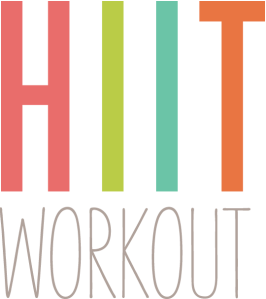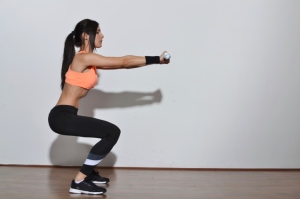Let me pose you a question: would you rather go down to the video store (if it hasn’t yet gone bankrupt) to hire a DVD, or stream it from the comfort of your own home? You’ve probably answered: the comfort of your own home, unless of course you get all nostalgic about walking down the street to hire discs. I know I do!
Okay, okay, now let me pose you a further question: would you rather spend one hour exercising, or 30 minutes? Stop, don’t answer that just yet. What if I were to say that both workouts would give you equivalent results? Unless you’re a time wasting enthusiast, pain junky, or DOMS devotee you’re probably going to answer 30 minutes. Well a new (old) exercise regiment known as high intensity interval training (HIIT) is offering just that.
Yes, if you believe one of the internet’s many great fitness prophets, then you will be aware that HIIT is the shit! Slow endurance training is the DVD for hire and HIIT is Netflix, which is of course, the shit. So is HIIT truly the shit, or should you beware of false fitness prophets?

What is HIIT?
Before I answer your previous question. What is HIIT? Simply put, HIIT involves performing intervals of highly intense exercise followed by either complete rest, or low intensity exercise. The high intensity-low intensity combination seems to be the more popular of the two currently.
How about an example? Sure, here’s one. Let’s say running is your game. Your HIIT may involve a ratio of a one minute sprint, to 45 seconds of slow jogging, repeated for a total of 15 minutes. It certainly doesn’t have to follow this exact ratio, or duration and these variables change greatly from protocol to protocol, that was simply an example. I should note, however, that scientific data to date has found minimal difference between different interval ratios thus far (9).

Why HIIT might be the shit?
HIIT is proposed to lead to multiple complex physiological changes to the skeletal muscle system that promote fat burning efficiency and preference, and more efficient oxygen utilisation. In turn, this is proposed to: make you skinnier, fitter and it will likely give you the ability to fly! But probably not the last one.
Science and HIIT (SHIIT):
Of course theory means little unless it translates to real world, real life changes. So, does it? Spoiler, it generally does.
Aerobic health:
A review paper analysing studies on individuals suffering from various different lifestyle diseases found HIIT to be effective. Specifically, cardiovascular fitness, as measured by Vo2 max, was 9% higher when individuals performed HIIT as opposed to moderate intensity continuous exercise (1). Another large scale review paper on scientific studies to date found HIIT to improve: aerobic fitness level more so than normal, moderate intensity exercise in both sedentary and active individuals. But it was only as effective as continuous exercise training in athletic persons (2). If that wasn’t enough science for you, a third study found HIIT to improve aerobic fitness as well as moderate intensity continuous exercise in a relatively fit group of people (3). This basically tells us that the lower your fitness level is, the better you will respond to HIIT and if you only want to do one sort of training, HIIT will be more effective than continuous training for aerobic fitness. Conversely, if you’re really fit and only want to do one form of exercise, then HIIT is as good as continuous moderate intensity exercise for aerobic fitness.

Muscles, muscles, muscles:
What about those muscles? Can you skip the separate weight sessions and do an all in one HIIT session? Well, the scientific data is very limited on this. But the one study that does exist on this topic, found that when having an active rest period was compared to having complete rest, complete rest won. Yes, complete rest led to greater work output, which in turn would likely mean improved: muscle mass, strength, power, looking shredded bro (4)! This makes sense and says that resistance training HIIT will likely provide you with some nice adaptations, but not as good as traditional weight training where proper rest between sets is taken.
Weight loss:
What about weight loss then? The data ain’t crystal clear on this. One study found HIIT boxing was better than continuous brisk walking at improving body fat percentage (5). Another study found participants had a decreased waist circumference following HIIT, but not following moderate intensity continuous exercise (6). Yet, in complete contrast, continuous moderate intensity exercise was found to decrease trunk fat more so than HIIT in another study (7). All in all, the science isn’t certain on whether HIIT or continuous training is best for weight loss. But if you base your workout on the number of calories you’re burning, based on average heart rate or a similar method, then you should be no worse off than performing continuous exercise, as average heart rate tends to be higher for HIIT and stays elevated for longer following exercise.
Adherence:
If HIIT is quicker to do, then you’d think people would do it more and stick to it. And they do! High intensity interval training led to a greater level of adherence (89% vs 71%) than moderate intensity continuous training (8). Grouse!

Is it healthful?
Ladies and gentlemen, HIIT is the shit! Or at least it is pretty darn good and very relevant to our time-centric society:
- HIIT is likely as good as endurance exercise for aerobic fitness and if you’re of a low fitness level it’s probably better.
- Resistance training HIIT won’t get you as ripped as traditional resistance training with structured rest periods. But it’s probably not a great deal worse.
- HIIT will lead to at least equivalent weight loss to continuous moderate intensity exercise in a shorter period of time, likely due to an elevated average heart rate.
- HIIT generally leads to higher adherence, so you’re more likely to stick with it.
Our verdict :Highly healthfull. If you’re time poor and unfit, HIIT’s the most effective way to turn things around. Although if time is less of a factor and you really want to optimise your health you should combine HIIT, anaerobic exercise and aerobic exercise as part of a proper periodised program. Especially, if you have sport related goals.
I hope this has been healthful!
Isithealthful
I hold a Doctor of Physiotherapy, Bachelor of Exercise Science and am a qualified personal trainer. I have extensive clinical and research experience and a strong passion for all things health. This has driven me to write the blog: Is it healthful, in order to analyse sound scientific research to determine if a product, service or intervention is healthful, or simply a waste of money or time.



Work hard, play hard !
ReplyDelete